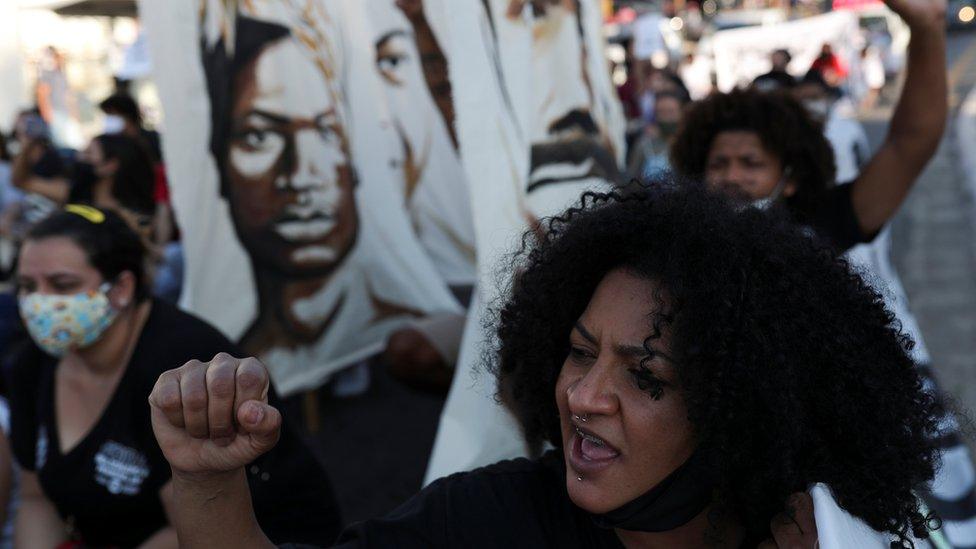Black Brazilians protest against racism and police violence
- Published
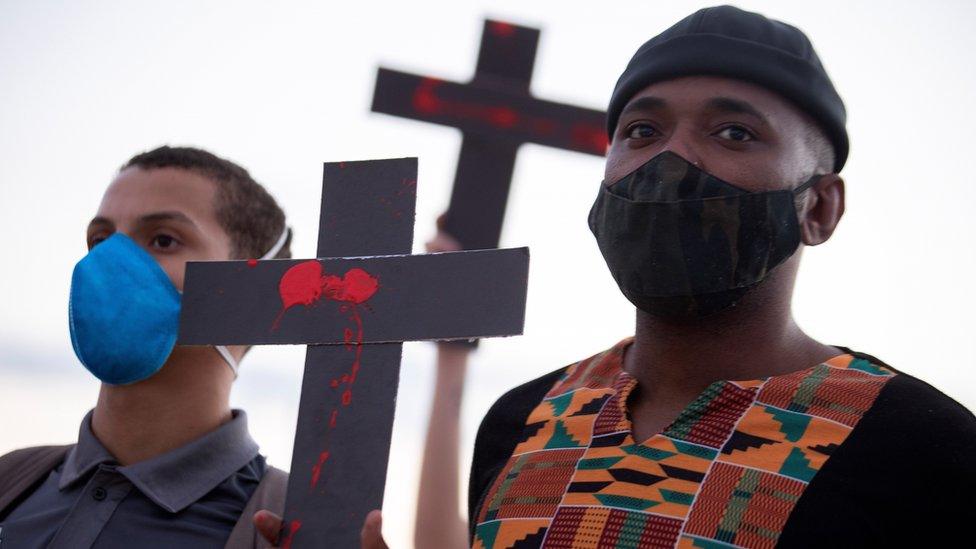
The protests in Rio de Janeiro took place a week after a deadly police raid in a slum in the city
Thousands of black Brazilians have demonstrated against racism and police violence, on the anniversary of the abolition of slavery in the country.
Protesters in Rio de Janeiro held candles and signs reading "Don't kill me, kill racism", a week after a police raid in a slum left dozens dead.
In São Paulo, messages read: "Black people want to live."
Black people are three times more likely to be killed by police in Brazil, experts say.
The protesters accused far-right President Jair Bolsonaro of genocide through police violence. He supports hardline policies to combat crime, including raids in areas where the majority of residents are black and poor.
The demonstrators also demanded the speeding up of the vaccination campaign for Covid-19, as the disease has been more deadly for black people in the country, one of the world's hardest hit by the pandemic.
In Rio, protesters condemned last week's 28 deaths in the Jacarezinho favela during an operation that police said targeted suspected drug traffickers, and called for justice. It was the deadliest police raid in the city's history.
Residents accused police of abuses, while human rights activists said there was strong evidence of extrajudicial executions, with officers killing people who wanted to surrender or posed no threat. Some of the victims, they said, were not even under investigation.
Demonstrators marched through the centre of the city, holding messages saying: "Who do the police protect?" and "No bullet, no hunger, no Covid". One banner had pictures of men killed in police operations.
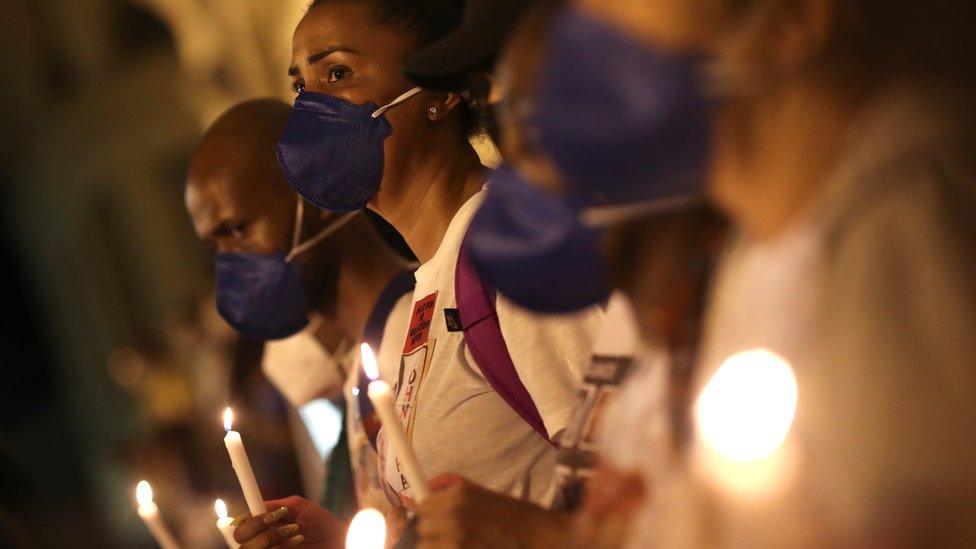
Demonstrators held candles as they marched in the evening in the centre of Rio
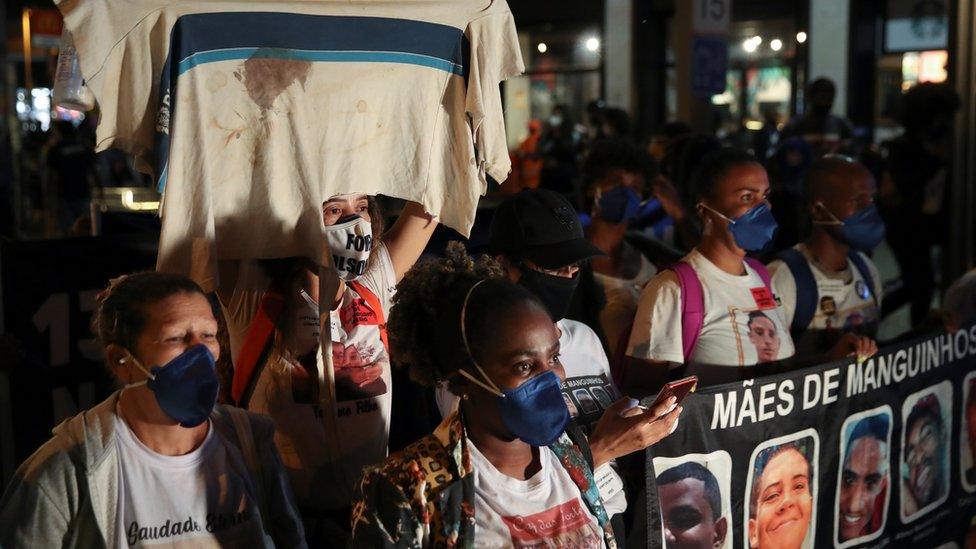
Protesters showed a school uniform with a blood stain and pictures of people killed in police raids
Brazil was the last country in the Americas to abolish slavery in 1888, when Isabel, Princess Imperial of Brazil, signed the law freeing slaves. Black Brazilians celebrate the end of slavery on 20 November, the anniversary of the killing of Zumbi dos Palmares, who led a community of runaway slaves.
"The black population still doesn't have rights," Josiane Peçanha, from the Afrodivas collective, told Globo TV at a protest in the city of Niterói, in the Rio metropolitan area. "This is a good day to reflect about the wounds of slavery on Brazilian society."
About 57% of the Brazilian population is black or mixed race, but they represent two-thirds of the victims of lethal violence, according to the Brazilian Forum on Public Safety, a non-governmental organisation.
A report by the national statistics agency IBGE in 2019, external said they occupied only a third of managerial roles in companies, were only a quarter of federal deputies in the lower chamber of Congress and made up three-quarters of the unemployment rate.
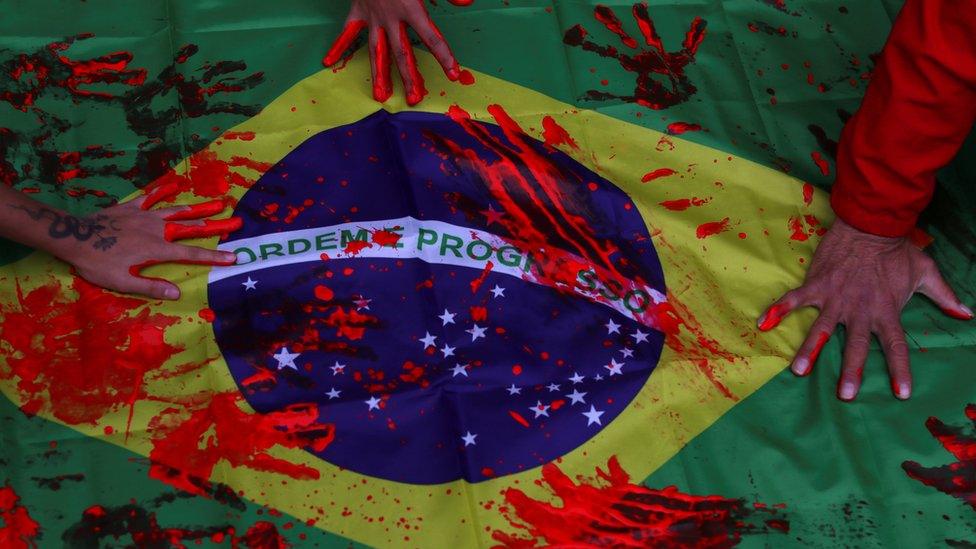
Demonstrators put hands covered in red paint on a Brazilian flag
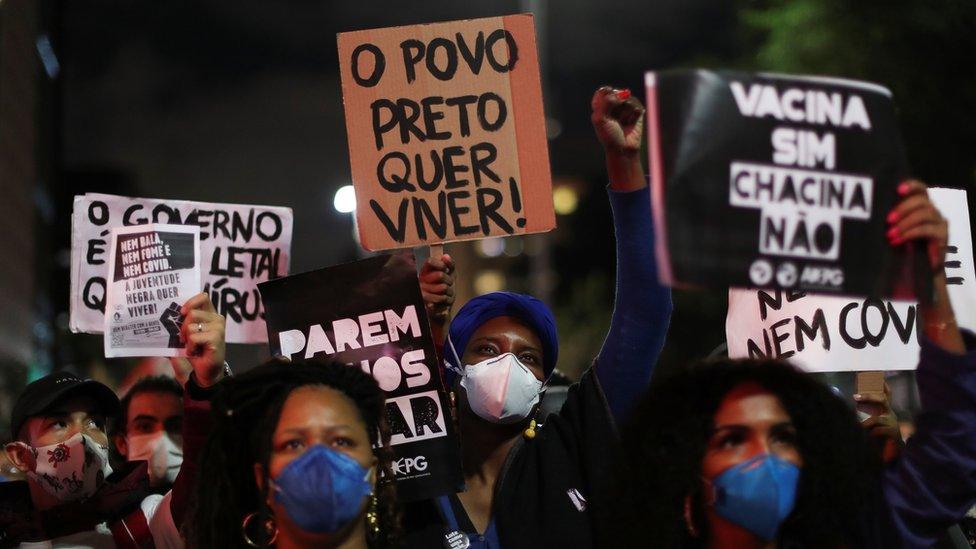
"Black people want to live" was one of the messages displayed in São Paulo
In São Paulo, a protest was held on Avenida Paulista, one of the city's main avenues, with organisers saying 7,000 people attended. Demonstrators painted their hands in red and daubed a Brazilian flag as a symbol of violence.
"We're marking the date of the false abolition of slavery, and the tragedy in Jacarezinho," protester João de Oliveira told Reuters news agency. "President Bolsonaro and his vice-president even applauded the slaughter. He committed genocide. We're here to protest."
Protests were also held in other major cities, including the capital, Brasília, where a demonstration took place outside the presidential palace.
The president, a former army captain who has supported changes in legislation that would protect officers from prosecution if they kill people on duty, congratulated Rio's police for the operation in a tweet.
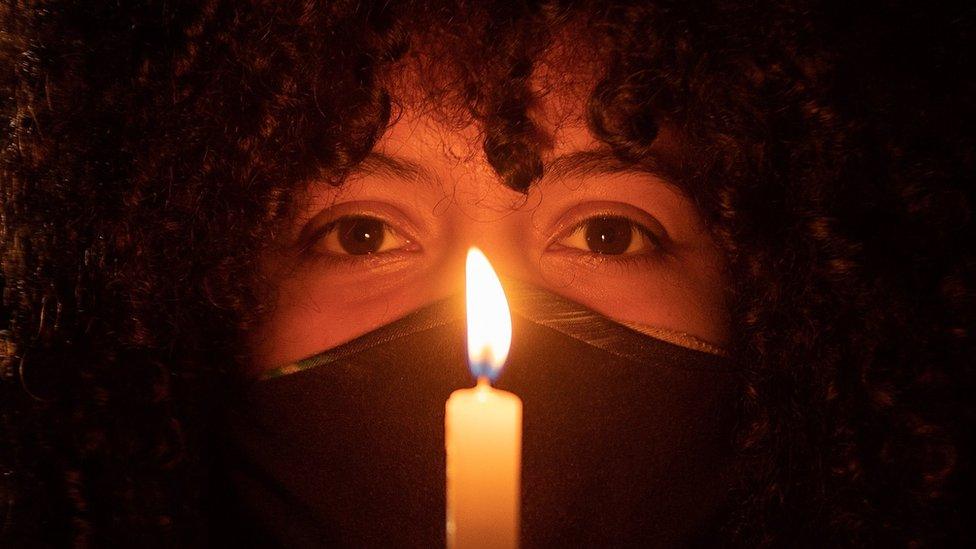
Protests were also held in the capital, Brasília
President Bolsonaro has previously denied that racism exists in the country, though a number of violent cases have exposed deep divisions.
Last year, the brutal killing of a black man at the hands of two white security guards outside a supermarket sparked widespread outrage.

You may also want to watch:
A BBC investigation uncovers, who is most at risk of lethal police violence in Brazil?
Related topics
- Published7 May 2021
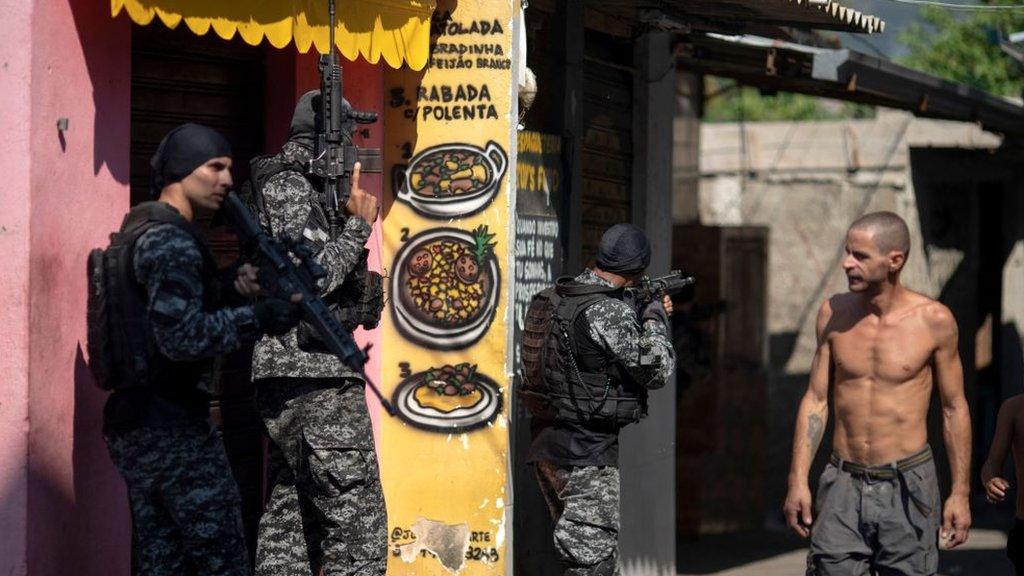
- Published25 July 2020
